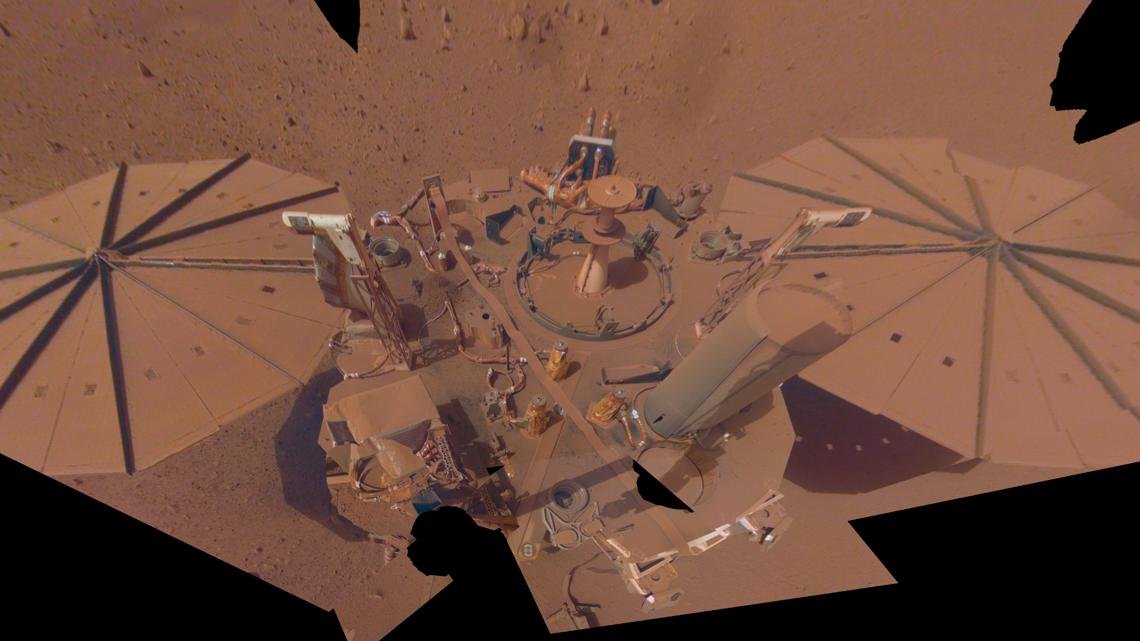General News
Mars May Harbor Hidden Ocean Beneath Its Surface, New Study Reveals

NASA’s Mars InSight lander, which detected over 1,300 marsquakes before ceasing operations two years ago, has provided data leading to a groundbreaking discovery.
CAPE CANAVERAL, Fla. — New research suggests that Mars may conceal enough water beneath its surface to form a global ocean. This revelation is based on seismic measurements collected by the InSight lander.
The water, believed to be located seven to twelve miles (11.5 to 20 kilometers) deep within the Martian crust, likely seeped underground billions of years ago. During that time, the red planet featured rivers, lakes, and potentially oceans, stated Vashan Wright of the University of California San Diego’s Scripps Institution of Oceanography.
While this finding does not imply that Mars currently harbors life, Wright emphasized that these subsurface environments could be potentially habitable.
Wright’s team used computer models in conjunction with InSight data, including quake velocity measurements, to conclude that underground water is the most plausible explanation. Their results were published in the Proceedings of the National Academy of Sciences on Monday.
If the water detected at Elysium Planitia near Mars’ equator is representative of the entire planet, it would be sufficient to cover Mars in a global ocean about a mile (1 to 2 kilometers) deep, Wright indicated.
Verification of this underground water and the search for potential signs of microbial life would require drilling and other specialized equipment.
Although the InSight lander is no longer operational, the scientific community continues to analyze the data it gathered from 2018 through 2022. These efforts aim to uncover more about Mars’ interior.
Mars, which was likely wet more than three billion years ago, lost its surface water as its atmosphere thinned, transforming it into the dry and dusty planet observed today. Researchers believe much of the ancient water either escaped into space or remains buried below the surface.


















